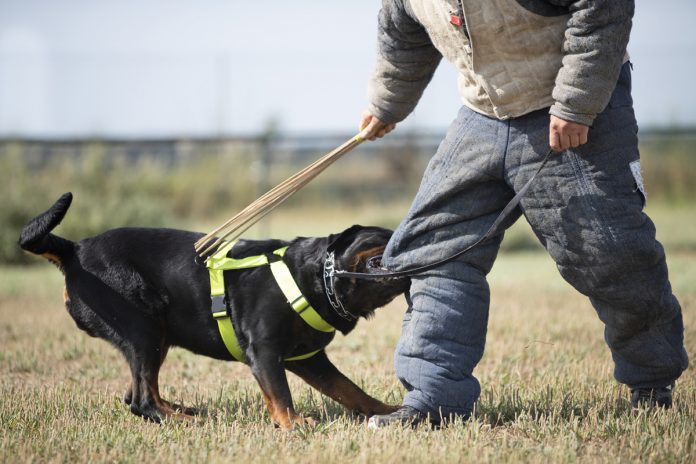Most people presumably would find it immoral if we picked a particular group of humans to be service humans and only serve people their whole life. Even if these service humans enjoyed what they did to some small degree, and some were treated well by their owners, it’s wrong that they are property and must serve people. Most people agree with this, which is why slavery is almost universally rejected within most moral worldviews.
Service animals help many unfortunate people who need assistance through everyday life. It seems many of us have taken for granted just to what degree service animals play a role in our society, from helping disabled people to being used in military and police forces. However, just because one action benefits one group of people does not necessarily mean the action becomes morally correct. Breeding animals into existence for the sole purpose of serving human needs is slavery by any serious definition of the word.
While disabled people are an underprivileged minority, we should be honest with ourselves in understanding the complex relationship that service animals have with humans. Surely it’s not controversial to say that people’s interest shouldn’t trump another sentient being’s life, or at the very least, it’s immoral even if people do choose to do it. No doubt it’s in society’s best interest for the moment that some people have animals to help them. However, this should be temporary as we find better ways to provide help for disabled people through new technology and more human volunteering.
However, it’s important to emphasize that just because a small group of people may rely on animals for help, this in no way justifies slaughtering upwards of 80 billion land animals a year to satisfy one’s palate. If we truly give animals moral value and treat them as more than just a commodity and a “thing,” then we are violating their rights even if it’s good for us.
As for animals used in military and police forces, this should be abolished immediately. These animals cannot consent to what they are being required to do. The animals are often put in high-risk, high-stress scenarios where they could die or develop psychological problems due to them being expected to be “machines” for human needs. Many service animals can never make decisions on their own since they are always training and obeying orders. These continual high-risk situations further add to the psychological problems many animals face.
Once everyone understands the ethical dilemma with service animals, only then can practical solutions be determined. The long-term goal should be to find more creative and less exploitative ways to help those who are disabled and require assistance. If most of the world becomes vegan, we will almost certainly have a society more accepting of and better at dealing with those who need assistance. Since veganism is an ethical position of radical non-violence and respecting others’ moral worth, people who choose this lifestyle will see how both disabled people and non-human animals are severely affected by today’s society and take a stand for both.
Veganism is more than just a diet. Veganism rejects animal exploitation in all its forms. Consequently, vegans reject all animal consumption including fashion, entertainment, experimentation and convenience. A sentient being should have one fundamental pre-legal moral right: The right not to be used exclusively as a means to another’s ends. That’s not to say necessarily that a cat is morally equivalent to a human, but both the cat and human deserve not to be abused, exploited or killed as a means to the end of another.
In summary, at the moment, disabled people may rely on animals, but that does not justify abled people’s consumption of animals in any way. The long-term goal should be to find creative and more practical solutions to providing for people who are disabled and work toward a world where animals aren’t objects for human consumption. Whether future changes include (consensual) increased human volunteering or taking advantage of new technologies, one thing for sure is that animals cannot consent to donate their entire lives to be our property. For more information on the ethics of using animals as property, read Animal Rights: The Abolitionist Approach by Anna Charlton and Gary L. Francione.
by Corey Blue

